A Rabbi's Final Yom Kippur: Extraordinary Farewell
The last Yom Kippur of Rabbi Shimon Nathan Neta Biderman, known as the Lelov Rebbe, was marked by poignant preparations and a peaceful departure. His actions during this time revealed a deep awareness of his impending passing.
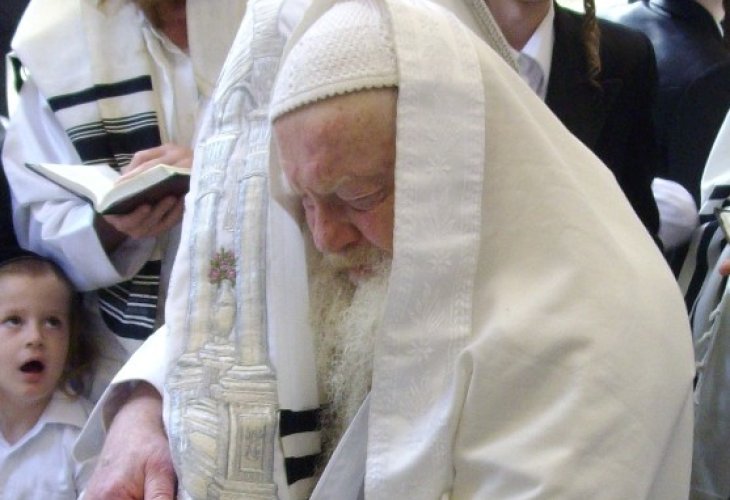 The Lelov Rebbe. Photo: Lelov Network
The Lelov Rebbe. Photo: Lelov NetworkFor twenty-three years, Rabbi Shimon Nathan Neta Biderman served as the Rebbe of Lelov until his passing on Yom Kippur, 5770. The last Yom Kippur of his life was preceded by chilling preparations, which later showed that the Rebbe foresaw his passing and prepared for it.
Throughout the final year of his life, the Rebbe made various hints about his imminent departure, though his followers did not understand them. During the third meal of Shabbat Shuvah, the Rebbe spoke at length about a passage where Hashem tells the patriarchs, "Your children have sinned against me," and how each would respond. When discussing Isaac, who would defend the people of Israel by saying, "Half on me and half on You," the Rebbe repeated in Yiddish, "Ich nem dos af mir" (I take it upon myself) five consecutive times, leaving listeners puzzled but unwilling to grasp the terrifying implications.
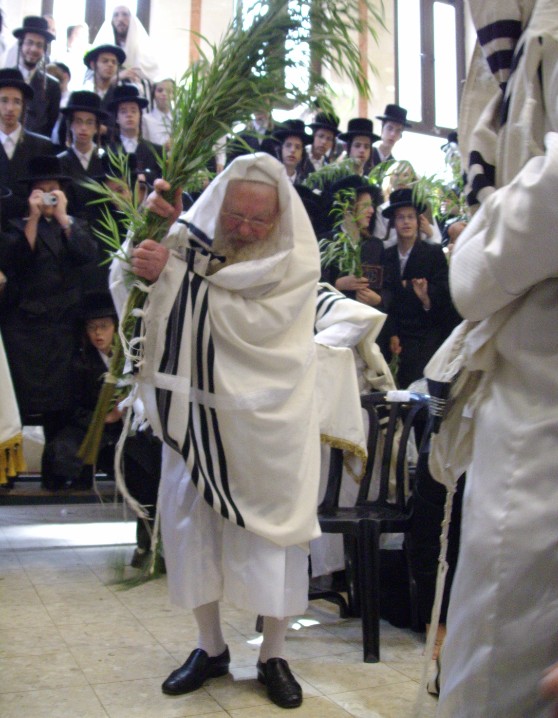 During the last Hoshana Rabbah of his life. Photo: Lelov Network
During the last Hoshana Rabbah of his life. Photo: Lelov NetworkThe Final Shehakol
At a Melaveh Malkah meal on the night before Yom Kippur, the Rebbe asked, "Whose yahrzeit is on Yom Kippur?" He was told about the Rebbe of Machnovka and the Rebbe of Peshworsk. A few minutes later, he asked again if there were any other yahrzeits, repeating this a few more times, inquiring about other righteous figures who passed on Yom Kippur, which was odd.
On the eve of Yom Kippur, from the dawn, it was evident that he was preparing himself as a vessel for atonement. He immersed himself in holiness and purity, preparing for his final day on earth. During the kaparot ritual, his face was unusually radiant with an intense focus, unlike his usual practice of maintaining his enthusiasm in private. It became clear later that he was not entirely present in this world... Throughout the day, he hardly ate, only tasting some crumbs from the *lekach* - a honey cake, breaking his annual custom of eating extensively on the eve of Yom Kippur, according to the teachings of Kabbalah. Instead, he exerted great effort to give everything he could to the holy community, prolonging the distribution of *lekach*. He also avoided receiving flogging after the mincha prayer, contrary to his usual practice. He spent considerable time reciting Psalms and when advised to eat so he would have strength for the fast, he replied, "Today my task is to say Psalms."
During the pre-fast meal, he did not eat, only drinking a glass of water and blessing it with "shehakol." It is known that there is significance to leaving the world with the blessing "shehakol n'hiya bidvaro," and this was his last blessing of pleasure in life.
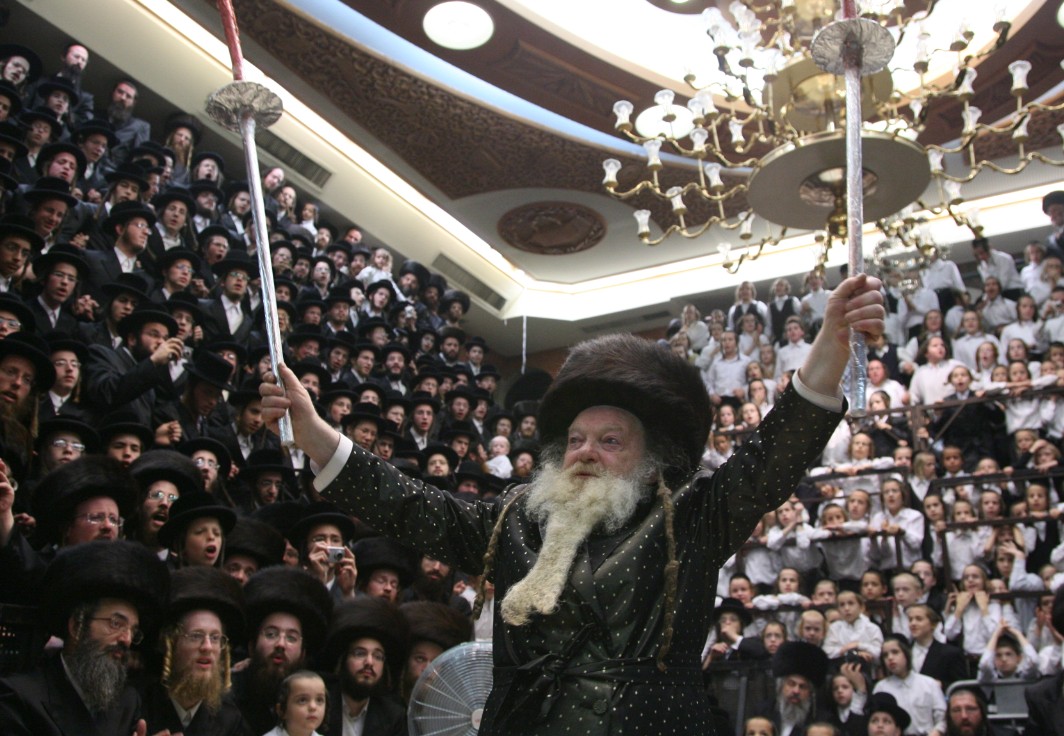 Photo: Lelov Network
Photo: Lelov Network
Master of Devotion
Before the Kol Nidre prayer, the Rebbe sat in his room, fully immersed in devotion. His grandson, Rabbi Shalom Nissan Bachner from the United States, entered with his young children, the Rebbe's great-grandchildren, who had come to Israel especially for Yom Kippur to receive his blessing. To their surprise, the Rebbe sat on his chair, eyes closed in deep devotion. The grandson gently tried to rouse him by moving the door and making light noises, but to no avail. Finally, the young great-grandchildren began yelling loudly, "Zaidy, Zaidy," and it was as if he descended from the heavens; he awoke from his devotion and blessed them with a sweet and good year.
The Rebbe, delayed, entered the study hall to lead the Kol Nidre and blessed "Shehechiyanu" with the kingdom's name, in a pleading voice, like a son imploring his Father in heaven.
After the prayer, he retired to his room and spoke with his attendant, Rabbi Simcha Krakowski, about the remarkable figure of Rabbi Naftali Chaim of Dzhikov, who died on Yom Kippur during the "and the priests and the people" prayer. Remarkably, in the latter's book, it is written, "the secret of the departure is that no one shall be present."
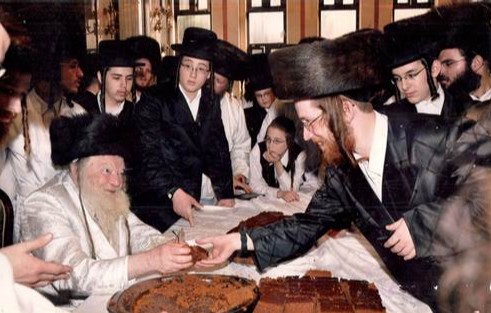 The last photo of the Lelov Rebbe's life. Photo: Shuki Lerer
The last photo of the Lelov Rebbe's life. Photo: Shuki LererAfter the service, the Rebbe returned to his room at home, his face flushed like a fiery flame, while the aides sensed he was concealing something. Previously, when asked by his grandson what time it was, he replied with a smile, "If so - there is plenty of time to sleep..." This was remarkable, as his life was one continuous acquisition of Torah in all its 48 ways, especially "little sleep," with his nights symbolizing continued study. How could he speak of "plenty of time to sleep?" The terrifying significance of his insinuations became clear two hours later.
Plenty of time to sleep, until the Resurrection - - -
The Rebbe got into bed, for the first time not preparing for himself *Negel Wasser*, the water for morning hand-washing, nor asking anyone to prepare it. When asked if the water should be prepared, he gestured with his hand, "No need."
The Rebbe began reciting the bedtime Shema, and when he finished, requested his kepah be arranged, and unusually asked the assistant to straighten his legs on the bed, something he had never done before. It is known to those who understand mystical teachings that it is important to straighten the body in preparation for the soul's departure. Yet, no one understood these hidden hints.
The attendants felt something was amiss and wanted to stay in the room a little longer to ensure everything was alright, but the Rebbe signaled with a firm hand gesture for them to leave, which they did...
"That no one shall be present - - -"
Seven minutes passed. Only seven minutes.
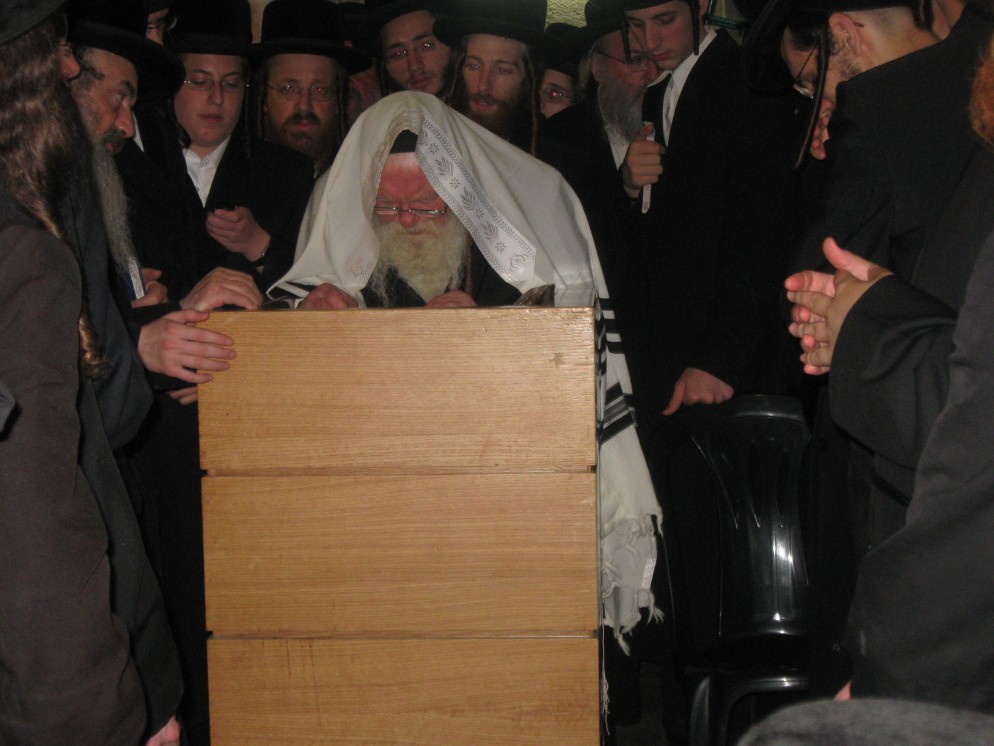 Performing the last Kapparot before his passing. Photo: Lelov Network
Performing the last Kapparot before his passing. Photo: Lelov NetworkHis attendant Rabbi Simcha Krakowski, who "never left the tent," decided to enter the room again, and there he saw the Rebbe lying in his bed, with only a slight change in his appearance. Approaching closer, he was horrified to discover that the Rebbe had already departed this world - - -
Moses longed for such a departure, a kiss of death - - -
It was shocking to think that just minutes earlier, they had witnessed the Rebbe gradually preparing for the final moment, the moment of "laughing at the last day." Within just 7 minutes, he ascended to heaven in a whirlwind.
The Rebbe's remarkable departure reminded many of his grandfather, Rabbi David Tzvi Shlomo of Lelov, who commented on the Mishnah: "An incident occurred involving a priest who was engaged and saw that the floor was different from its surroundings. He went and told his friend, and before he could finish speaking, his soul departed, and they knew specifically that this was where the Ark was buried" (Shekalim Perek 6, Mishnah 2).
His grandfather noted that with the soul's departure of a "veteran Jew," there is a unique unification in the upper world. This is what was meant: until the soul of that priest departed, creating such a unification, they knew that this was where the Ark was buried.
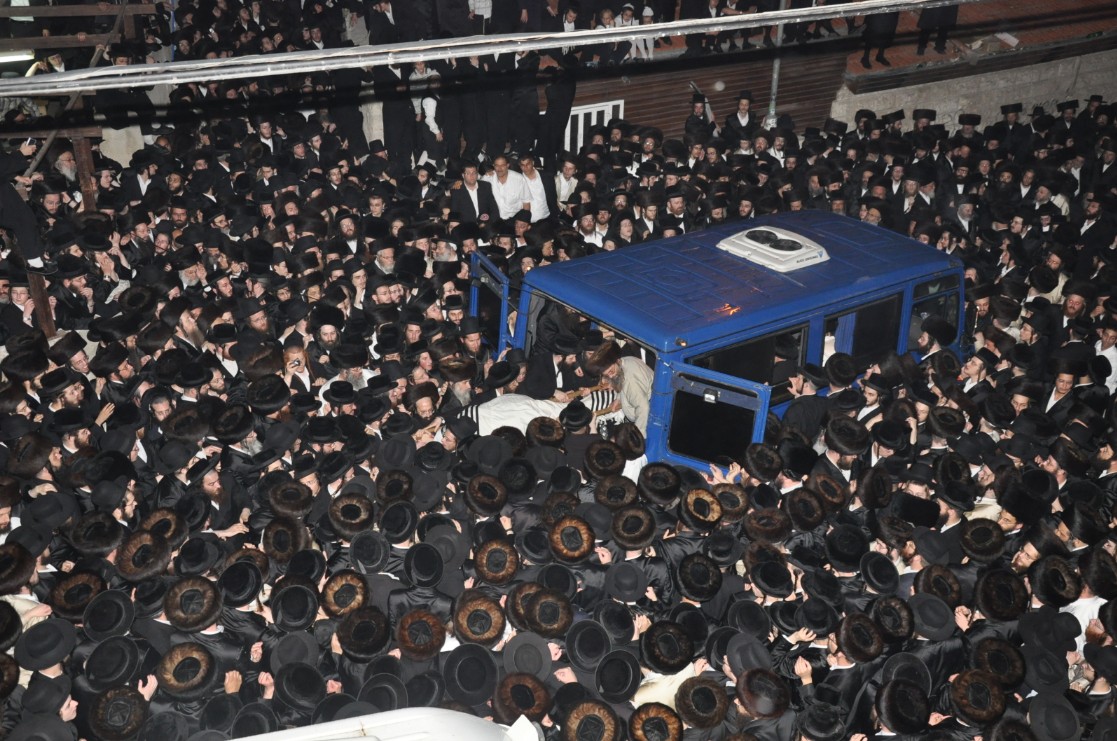 Photo: Lelov Network
Photo: Lelov NetworkRemarkably, something previously unknown is worth noting: in a conversation with the Chevra Kadisha members who dealt with his sacred body on the night after Yom Kippur, one of them reported that upon the pure bed's arrival at the purification room, terror and fear fell upon all present, even the seasoned Chevra Kadisha members who are accustomed to such things and fear nothing. A profound awe fell upon everyone in the presence of his illuminated and radiant pure face (more than a day after his departure!) which looked exactly as he did on the eve of Yom Kippur when he prayed, with his eyes closed and his holy face expressing a profound focus in immense devotion - this was his appearance on the night after Yom Kippur during the purification, more than a day after he passed: completely immersed in immense devotion, just as he was at the time of his passing.

